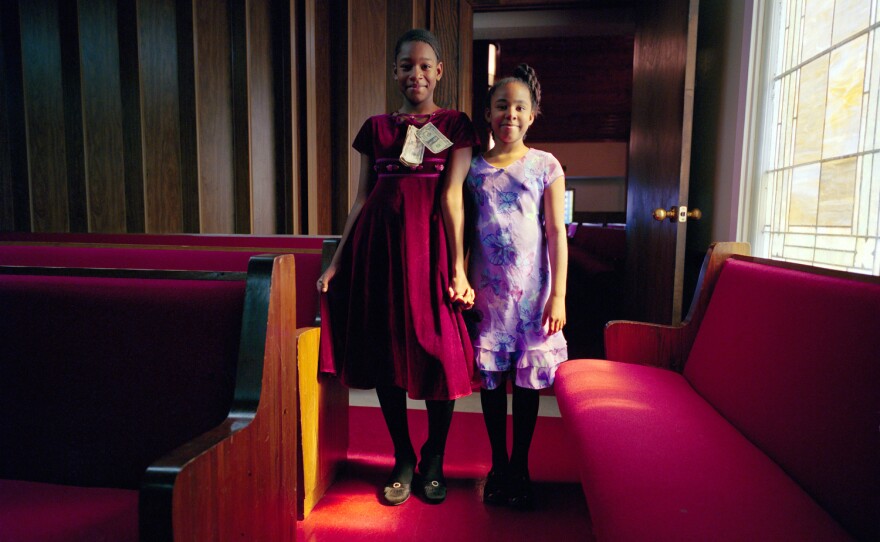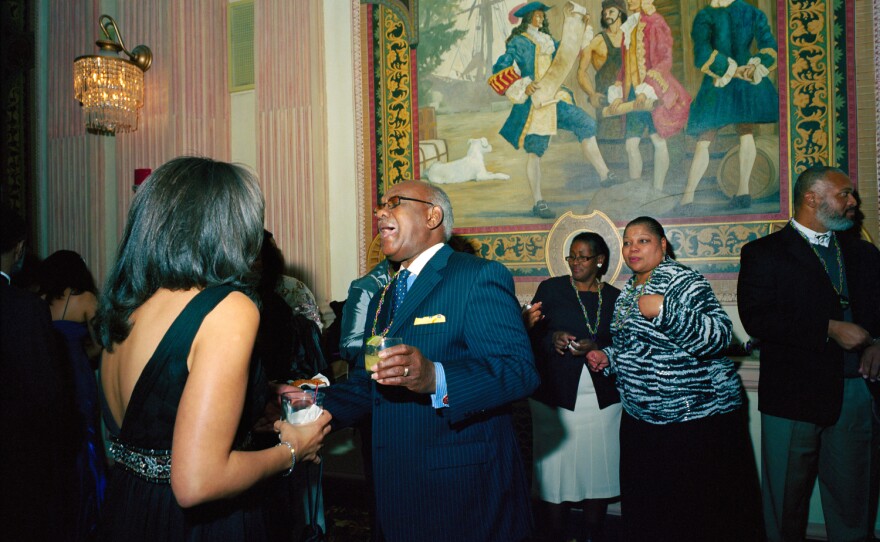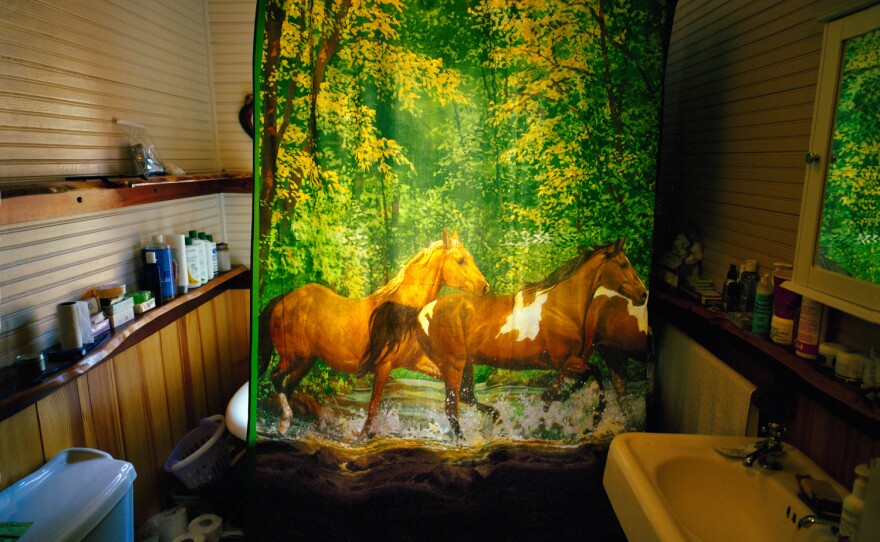In 1991, photographer Alex Harris was nominated for a Pulitzer Prize in general nonfiction for his book River of Traps, written with William deBuys. It told the story, in words and pictures, of an old-time New Mexican villager. Harris didn't win.
Instead, the prize went to evolutionary biologist E.O. Wilson for The Ants.
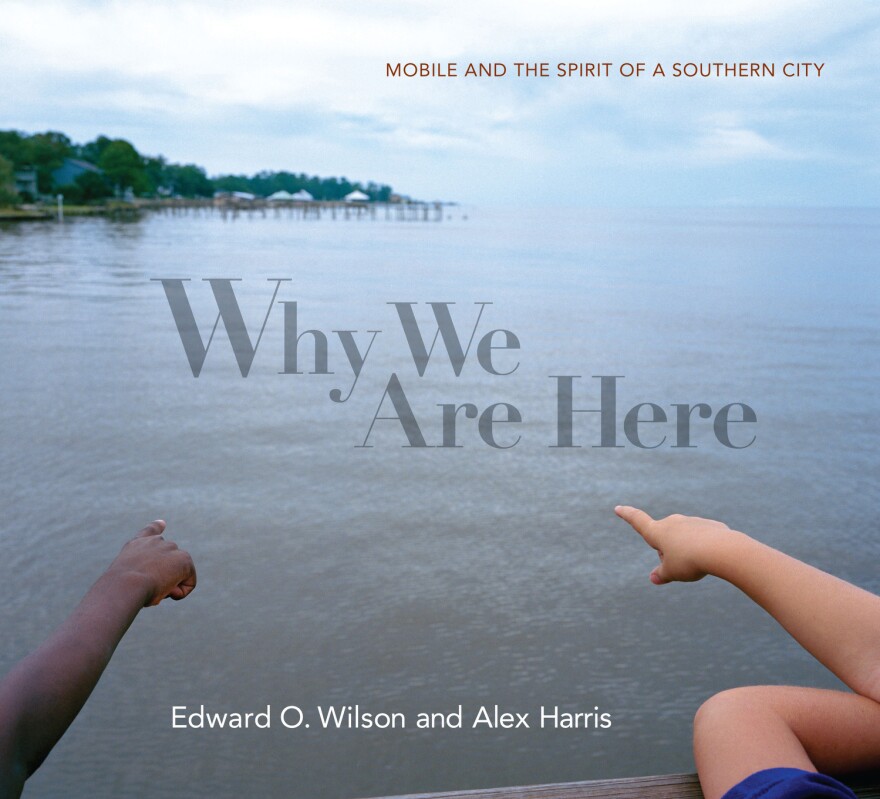
"It took me 20 years to get over that defeat," said Harris.
Then, coincidentally, Harris was asked by a friend to take a photo of Wilson for his birthday — but before photographing Wilson, Harris wanted to have lunch with him. They hit it off splendidly, and by the end of the meal, they had decided to work on a book together.
That book, Why We Are Here, is a rich examination in text and photos of Wilson's boyhood home of Mobile, Ala. The photos show a distinct people, nature and, most importantly, place — infused with Wilson's unique scientific theories on human existence.
"I tried to photograph the people and places in a way that related to something bigger," said Harris over the phone.
Harris, who also grew up in the South, made five trips to Mobile — the last with Wilson. He said stepping foot in Mobile felt like a homecoming of sorts. And once there, he set off to photograph a "cross-section of contemporary Mobilians, looking at their lives, families, institutions and natural environment."
Ultimately, Harris says, he and Wilson wanted to create a book that was as much about the meaning of place as it was about the place itself.
Wilson's writings helped to inform Harris' pictures, influencing the feeling and tone of his work. Instead of just shooting off the cuff, Harris purposely incorporated Wilson's weighty hypotheses into his photographs — such as "consilience" and "biophilia," the idea that humans' love for nature is deeply rooted in our biology.
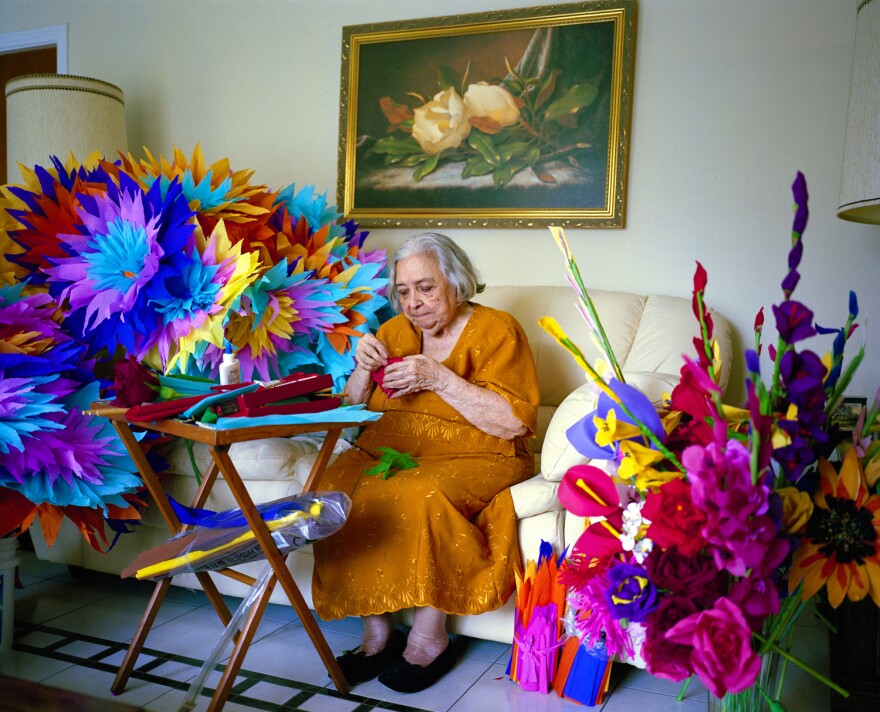
"As a photographer, I can't just get off the plane and start taking pictures, that's not the way I work," Harris says. "I need a kind of framework to see a particular place ... and in Mobile, E.O. Wilson's life, writing, stories — that became my frame. I wouldn't have photographed Mobile in this way if I hadn't been working with Wilson."
One photo that particularly illustrates biophilia is of the deaf and blind Rosa Barahona steadily making paper flowers for a festival, as if she must stay as connected to nature as possible. Another shows Roy Hyde putting an ear to his beehive to feel whether the warming sun has stirred the bees awake.
"I think I was expressing my own biophilia in the way that I photograph," adds Harris.
Harris says working with Wilson and getting to know him was one of the greatest pleasures of his life. Perhaps they can win a Pulitzer together.
Copyright 2021 NPR. To see more, visit https://www.npr.org.




